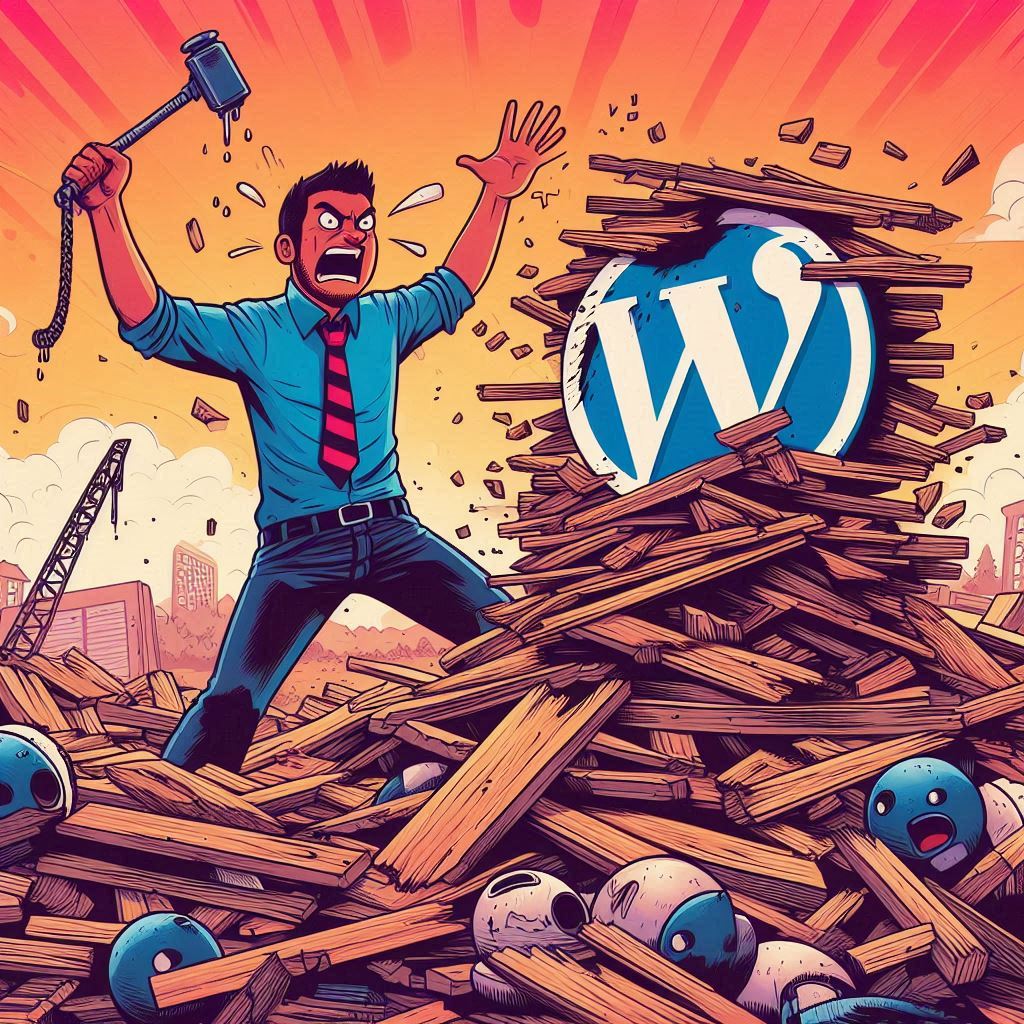· News · 7 min read
Matt Mullenweg is Gutting the WordPress Project and Community

If you haven’t been living under a rock recently, you know about all the controversy in the WordPress community around WP Engine and the founder of WordPress, Matt Mullenweg. This has resorted in a tit-for-tat flurry of accusations, posturing, over the top claims, lawsuits, and even blocking WP Engine customers from interfacing with wordpress.org for updates and installing plugins and themes.
One of the key claims Mr. Mullenweg has made is that WP Engine does not contribute enough back to the WordPress community. Nevermind that nowhere in the license is this stipulated. And yet we find out today that now the WordPress organization is trying to actively PREVENT WP Engine from contributing back to the community or even participating in any way.
The shear arrogance of this is astonishing in the open source community. A community which is known for having a strong mix of for profit companies making money while employing for-profit developers to write code around open source projects. Both of which often contribute back time, money, and energy to these projects.
Having been actively working with open source projects since 1999, when I was first introduced to Linux, I find this to be both bizarre and frightening. It is a sign that the project is no longer about the community, but about the ego of the founder. It is a sign that the project is no longer about the software, but about the politics of the project. It is a sign that you and your customers could get caught in the cross-fire and end up on the losing end of things.
The WordPress Community is not WordPress nor its Founder
While Matt, on the surface, tries to sound like he has the moral high-ground with his claims about the usage of WordPress trademarks and the lack of contributions back to the community, the reality is that his actions are speaking louder than his words. With his brazen attempts at extortion and using his very powerful position this no longer looks like some noble efforts to protect an open source community. But instead at direct attack on a competitor for his own profits.
He sits at the top of the WordPress project itself, the non-profit organization behind it, AND the for-profit WordPress hosting company he owns and that directly competes with WP Engine. The entire thing screams conflict-of-interest. Agencies, developers, and their customers are getting caught in the cross-fire.
Like many open source projects, WordPress has grown far beyond its founders and roots. It has become the basis for 43% of the websites you can find online. Which is more than 835 million websites. This site, patrickthurmond.com, used to be built on WordPress. I moved away from it for several reasons, but mostly due to security concerns and hosting fees. Yet, up until this controversy I was fully supportive of the project and using it for businesses and individuals alike.
The community has become enormous. Just in 2021 there were 988 people that contributed directly to WordPress core source code. Compare that to Linux, which has been around since the early 90s, at least a decade longer than WordPress. Linux runs Android phones, most of the web servers in the world, even the International Space Station switched to Linux from Windows. Linux is everywhere and since 2005 there have been a bit over 15,000 developers that have contributed back to it. WordPress is reaching and possibly surpassing those numbers.
People and companies have built businesses and little communities around WordPress. Non-profits use it to build and run their own websites and to help with donation campaigns and donation collection. Governments and schools use it to get important information out to the community. My Dad, when he was alive, used it for his business, Collectorholics, to run his website.
The community is massive, but it is also tied strongly to WordPress.org and thus Matt Mullenweg. So much so that he can block people’s access to critical automatic updates and downloading plugins and themes on a whim and he can blackball them across the community just to get his way.
Matt Mullenweg has TOO MUCH Power
As I just said, Mullenweg has the power to turn off access to updates, plugins, and themes on a whim. He has the top influence in the community and has used his platform for his own gains and to disparage and attempt to control others. In this case WP Engine. His efforts amount to extortion. And leave the entire community wondering who will be next.
Matt has his supporters, sure. However, even people that have called themselves his friend have spoken out against his actions and have condemned him for it. The YouTuber, Theo, of t3.gg has implored him to apologize and stop this nonsense.
It gets worse though, Matt actively STOLE a WordPress plugin created by WP Engine. One of the most popular WordPress plugins ever, ACF (Advanced Custom Fields). They didn’t just fork it. They took over the plugin page and all the installs and updates for it. And they stripped out the paid features, replacing everything with their own version.
As a developer this would be a nightmare. Having your business gutted overnight by some overgrown child throwing a tantrum. And having parts of it actively stolen from you and because a competitor no longer likes to compete.
This kind of power, left unchecked, is devastating. It has companies and developers all over the world rethinking using WordPress at all. And certainly rethinking building tools and businesses around it. I, for one, can no longer recommend using WordPress while Matt is at the helm. Matt Mullenweg needs to step down or be removed by whatever proper means there are. Without that the WordPress community will be gutted permanently.
Forking or Boycotting WordPress and the coming Mass Exodus
Many might not come out and say this, but this will likely lead to a significant boycott of WordPress. If nothing else many customers will move on to greener pastures. Many competitors are already taking this opportunity to sell their conflict-free services to replace it. This is likely the beginning of a mass exodus.
There is already talk of forking WordPress and creating a new community. While this is not the first effort to fork (there is a project called ClassicPress that was started in 2018), there is renewed interest in forking WordPress and making a clean break from the current mess. Ironic since WordPress itself was a fork of another project called “b2/cafelog”.
For years now there have been growing concerns over the security of WordPress itself and the plugins and themes that you can get directly from wordpress.org. Even if the WordPress team was top notch about security reviews and updates with a crack team of programmers keeping an eagle eye on things you still have a plethora of 3rd party plugins and themes that most definitely do not have that kind of security clout.
There have also be more and more quality and performance issues with WordPress. Many developers and agencies have gotten lazy with building WordPress sites and are still charging an arm and a leg for what amounts to white labeling of a website. The reasons continue from there. This drama will likely be the straw that broke the camel’s back for many site owners, developers, and agencies.
Going Forward
Going forward, for any work I do, I can no longer recommend WordPress to anyone until things change. For personal and freelance work I will be actively boycotting the use of WordPress until Matt Mullenweg is not longer in charge of the WordPress Foundation.
Matt, if by some miracle you read this, please do what is best for the WordPress project and step down. Stay with Automattic. But end this conflict-of-interest and this entire farce. This is the greater good. While I commend the immense accomplishment of creating the most popular CMS the world over, you do not have the right temperament to keep running all these conflicting things.
